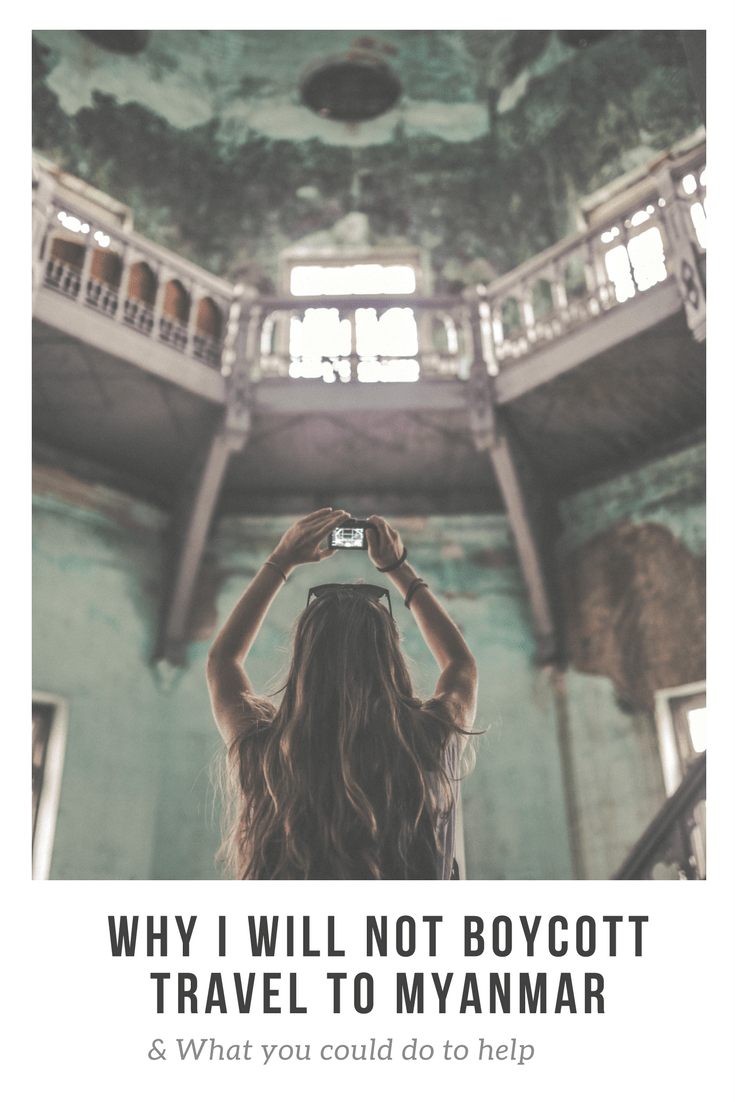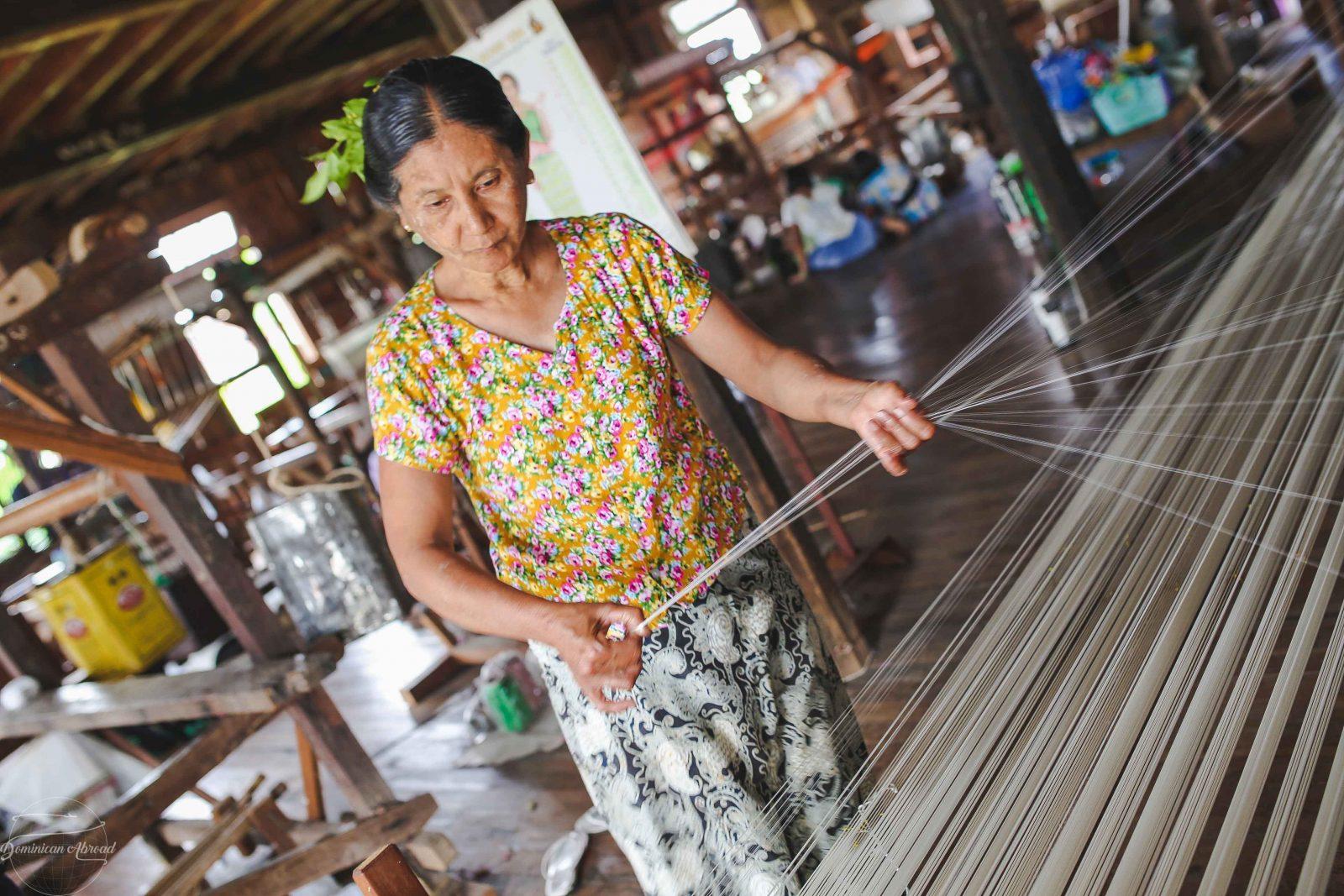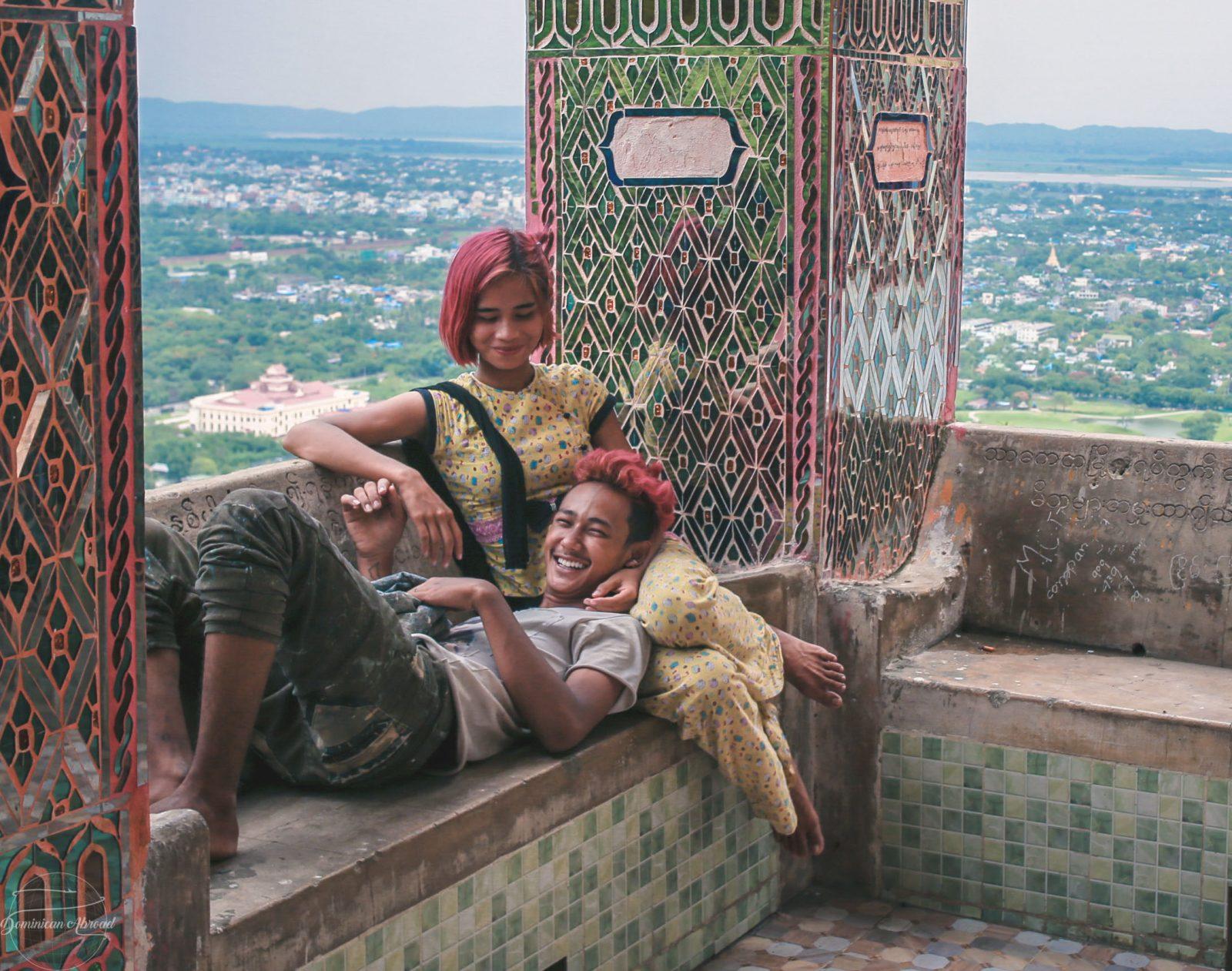Myanmar has been making headlines across news platforms and social media for its military’s persecution of the Muslim Rohingya ethnic minority, which United Nations experts now call “textbook ethnic cleansing.” Because of this humanitarian crisis and the government’s public denial of its gravity, many ethically-mindful travelers have called for a boycott of Myanmar travel. These travelers and activists argue that a travel boycott to the country could help stem financial support to its government and military, therefore mitigating the crisis and sending to Myanmar and the world a message of solidarity with the Rohingya people.
While their intentions seem good-willed and altruistic, their recommended response to these issues is wrong and detrimental to the people of Myanmar. As a staunch opponent of embargos and sanctions as means of improving a country’s political structure (see my thoughts on the Cuban embargo), with passionate conviction I wholeheartedly refuse and say NO to a Myanmar travel boycott. Here’s why.
Table of Contents
A Travel Boycott to Myanmar will Punish the Wrong People
Thank you for coming to my country. We have more jobs and better income because of the increase of travelers here. You coming here has greatly helped our lives! Please tell all your friends and family to come visit.
These were the words a Burmese small business owner and driver passionately expressed to my friends and me as he drove us back to our hostel. He was bursting with emotion as he said it. We had opened up and gotten to know each other on the long drive back from the Heho market.
Hundreds of thousands of Burmese critically depend on tourism for their income and livelihood. The government and military of Myanmar do not need our money; it is simply a bonus for them. However, the Burmese, who are neither their government nor their military, will suffer. Our absence will hurt them.
The Persecution of Ethnic Minorities in Myanmar is Not New; It Has Been Going on for Decades, But Tourism is New
Persecution of Myanmar’s various ethnic minorities has been ongoing since the British granted the country its independence almost 70 years ago. The ethnic cleansing against the Rohingya is making headline news now because of a new insurgent attack in August to which the military responded brutally (as usual). This sparked a new and massive wave of Rohingya migration into Bangladesh.
Although the ethnic cleansing is not new, what is new for Myanmar is open and increased tourism. Perhaps tourism is why Myanmar is making more headlines now because the outside world is more interested and emotionally connected to the country’s current events.
A Lack of Tourism Has Never Deterred the Burmese Military
Myanmar recently opened its doors to tourism. This means that during the nation’s isolation from foreigners and tourist revenue, the Burmese military still committed mass atrocities against its various ethnic groups. So, why would an end to tourism in Myanmar stop them now?
Sanctions, Embargo, and Travel Boycotts Strip Power from the People
Removing tourism from Myanmar will give the military more power to carry out its horrific acts under less scrutiny. It will strengthen the military’s power while curtailing the people’s autonomy and will.
For instance, in Cuba, an authoritarian rule coupled with a travel/economic embargo caused the Cuban people to almost completely lose their ability to achieve financial self-autonomy. They became completely reliant on their authoritarian government. The more the United States tightened the embargo, the more mobility the Cuban people lost and the more control their government gained over them.
The Burmese Are Not Their Military and the Military is No Longer the Government
The Burmese should not be punished for the actions of their military and government. Correspondingly, it’s important to understand that the Burmese military, formerly a government dictatorship, is now a separate entity with its own jurisdiction apart from the Burmese government. This means the nation’s leader, Aung San Suu Kyi, and government have little power over the military’s atrocious actions.
Moreover, many Burmese have disclosed to me their concerns about the possibility that Aung San Suu Kyi will lose the next election because this could mean the country would fall back under military dictatorship. Therefore, Aung San Suu Kyi must wisely handle this issue in a manner that does not alienate the popular vote. Her words affect the popular vote because many Burmese have been convinced that they should hate the Rohingya and that no ethnic cleansing is occurring.
Foreign activists often overlook these delicate complications.
Travel and Dialogue Can Bring About Change, Especially in an Orwellian Society
By pushing Myanmar back to its days of isolation from tourism, we wouldn’t just be taking away income from the Burmese; we’d also be pushing them away from engaging and exchanging ideas with people from around the world.
Many Burmese, like other people around the world, have been conditioned to think that certain ethnic groups such as the Rohingya are bad and/or inferior to them. Because Myanmar’s media has been heavily censored, the Burmese have also been molded into thinking that no ethnic cleansing is going on. This fact, coupled with limitations on free speech, has cultivated a hive mentality among the Burmese, especially because dissent against the government’s ideals is repressed due to a valid fear of repercussions.
Activists argue that this racism is even more reason for a travel boycott, but I think it means that engaging in open-minded conversations and discussions with the Burmese is now more important than ever. You may not be able to talk to the Rohingya or see the harsh realities of what is occurring because the violence is isolated in regions away from tourism; however, you can diplomatically talk to some Burmese, listen to their side and maybe share your insights with them. You’d be surprised how much you can learn from each other.
It’s Hypocritical and Inconsistent
If you’re going to boycott Myanmar for the actions of its military, please remember to boycott all the countries that are funding the Myanmar military. You should also boycott the countries supporting those countries. And you should definitely boycott major powers such as the United States for the atrocities its military leaders have committed against other lives around the globe. And on and on until you’re living alone on a deserted island.
So, you are either hypocritically/inconsistently engaging in fallacious logic or you are picking and choosing which lives are more valuable.
What You Can Do to Help
- Read up on the history of this crisis. Awareness is always the first step. It is important to learn about the history of all sides, at least starting with Myanmar’s British colonization. Finding George Orwell in Burma
is one of my favorite books on Myanmar and is an easy read. I also wrote a brief summary here using the voices of both sides of the conflict.
- Engage with the Burmese and maintain a diplomatic dialogue with them. Cultural exchanges with locals are powerful ways to discuss current events and issues related to cultural relativity. Listen to and enlighten each other. If you meet someone with whom you agree, let them know they’re not alone. Let them know the world is on their side even if their country makes it look otherwise.
- Spread awareness of the issue. You can do this in a variety of ways. Through your travels to the country, you can educate people about the issues by connecting your photos, experiences, and insights to current events. Many people probably do not know that Myanmar even exists, let alone about what’s going on inside the country.
- Donate to charities you trust that are actively involved in this crisis and that help refugees receive necessary aid. The New York Times has compiled a list of organizations responding to the Rohingya crisis; find it here.
- Travel mindfully. Support the Burmese people. Travel, stay, eat, and shop at locally-owned establishments and spread your money around. Likewise, avoid places that directly support the military and fund the government, such as:
- Mandalay Palace (see here for Mandalay travel guide)
- Gem shops
- Luxury hotels and restaurants
- Government-owned tours
- Government transportation
- Volunteer. There are volunteer programs/opportunities to help refugees around the world and in neighboring countries that border Myanmar.
- Pressure government officials and organizations locally and/or internationally to take action.
Conclusion
To conclude, I will reiterate: Boycotting tourism to any nation is not an effective way of undermining its government in an attempt to help its people. As tourists, we can spend our money in more ethically-mindful and calculated ways that support local and independent Burmese businesses.
If you haven’t been following what’s going on in Myanmar, that’s OK. It can be confusing because the situation is not as straightforward as many paint it to be. In this post, I provide a “quick” summary that will help you understand what’s happening in Myanmar, employing the voices of people on both sides of the conflict. And in this post I list the best places to visit in Myanmar!
Pin me for later:

ACKNOWLEDGEMENTS / CREDENTIALS
Thanks to the above to the following resources/inspirations:
Emma Larkin – Finding George Orwell in Burma
Notes of a Nomad – Why I Won’t be Boycotting Travel to Myanmar
Nomadic Matt – Why Travel Boycotts are a Waste of Time
Burmese Redditors – For a balanced perspective on the complexities of these issues





Thank you for this well thought out and well explained post! I haven’t been to Myanmar yet, but I’ve read a lot of posts from the other side. Yours is the first I’ve read so far (on travel blogs) asserting that it’s more ethical to go than to boycott, and I agree with your theory. I need to educate myself more on the history of the situation, so thank you for posting links!
While I agree that boycotting a country is almost never the answer, I do think that North Korea is a special exception and don’t think it’s at all possible to visit ethically. What do you think?
Totally agree!
I actually wrote a similar post a few weeks ago.
Supporting local communities and engaging in respectful exchange is the only way we can contribute to changes in the minds of Myanmar people and hopefully, in the future, their government.
I must admit that I did felt a shocked when I spoke to the smartest, kindest and most open people around the country and they all have been thoroughly indoctrinated on issue. But we have to engage and find arguments when we disagree not look the other way.
Happy continued travels!
This is such a great article, well written and well reasoned. It’s a difficult ethical problem to grapple with but after reading this i’ve concluded that youre probably right. Thanks for writing this! And now i’m gonna go read your other post about the conflict…
Sure let’s take a vacation and see the wonderful sites in 1939 Germany, i’ve heard the genocide is only on the outskirts of the reich so it’s fine to visit most of the country.
This is the horror you are endorsing by even setting foot in a country committing genocide:
https://www.nytimes.com/video/opinion/100000006035884/capturing-their-genocide-on-their-cellphones.html